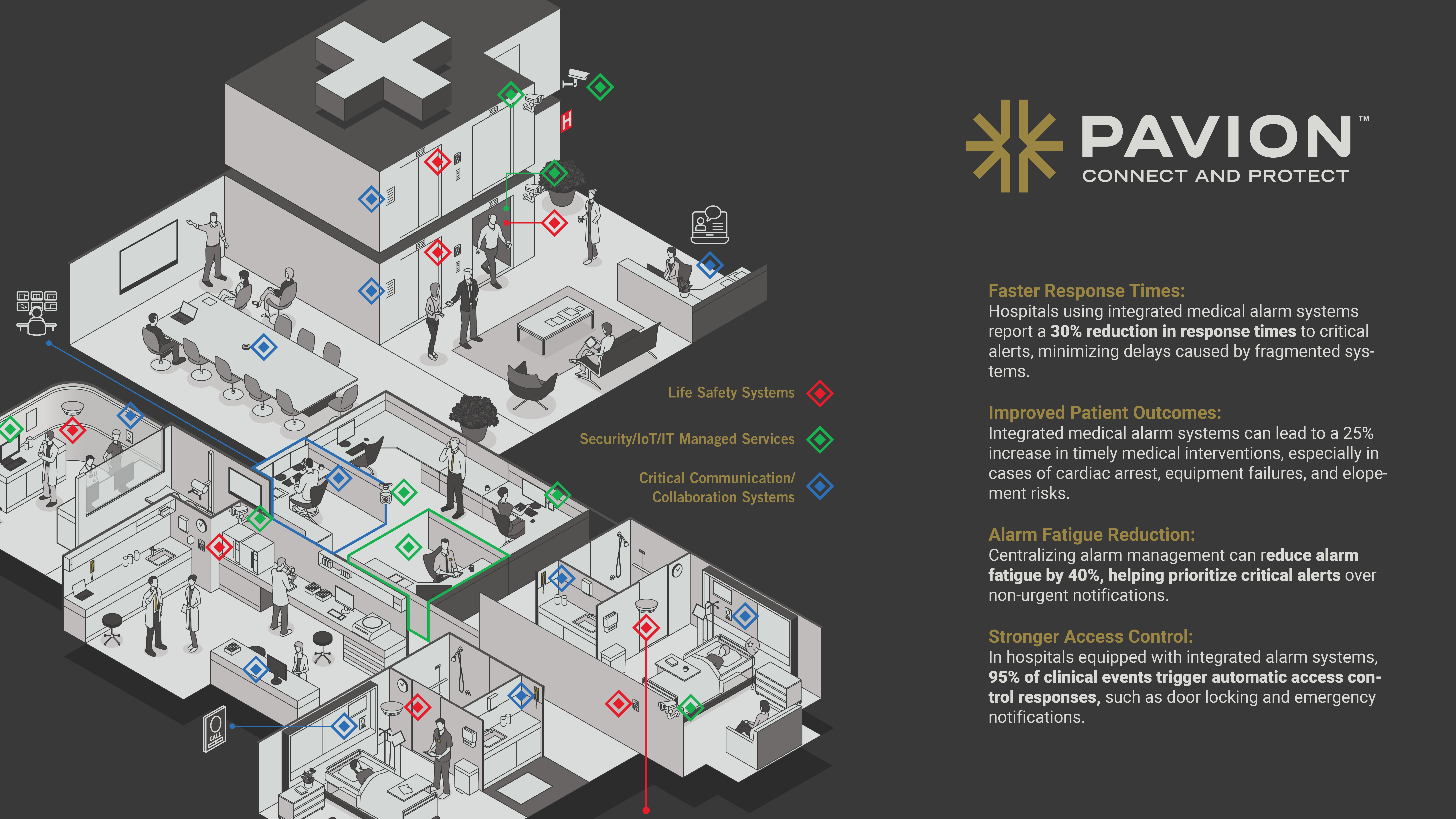
Integrated Medical Alarms: Strengthening Hospital Security Systems
In today’s fast-paced healthcare environments, safety and response time are critical. With rising demands for patient care and evolving security challenges, hospitals are turning to integrated medical alarm systems to enhance both patient safety and facility security. These systems are no longer standalone tools—they’re part of a comprehensive hospital security system strategy that keeps patients, staff, and data safe around the clock.
What Are Integrated Medical Alarm Systems?
An integrated medical alarm system combines clinical alerts with the broader security infrastructure of a hospital. It ensures that when a medical device triggers an alert—such as a ventilator disconnect or a patient fall—relevant personnel are notified immediately. But more than that, it links those alerts with real-time location systems (RTLS), video surveillance, access control, and emergency response protocols.
These integrated systems streamline communications, reduce alarm fatigue, and improve medical device alarm safety in hospitals—a growing concern among healthcare professionals. The ability to unify these systems creates a safer, more efficient care environment.
Benefits of Integration in Hospital Security Systems
- Faster Response Times
Integrated alerts mean that nurses, security teams, and emergency responders receive the right information at the right time—eliminating delays caused by fragmented systems. - Improved Patient Outcomes
Clinical alarms integrated with security systems allow for faster medical intervention, especially in emergencies like cardiac arrest, elopement risks, or equipment failures. - Alarm Fatigue Reduction
Centralizing alarm management helps prioritize critical alerts over non-urgent ones, addressing a major pain point in medical alarm system monitoring. - Stronger Access Control
When a clinical event is triggered, integrated systems can restrict or grant access automatically. For instance, if a newborn abduction alarm goes off, exit doors can lock instantly while notifying security. - Centralized Monitoring
All alerts and data feed into one command center—streamlining workflows, minimizing confusion, and providing critical situational awareness.
Security in Hospitals: Best Practices with Integrated Systems
- Adopt layered security: Combine medical alarms with physical security, cybersecurity, and personnel training for a holistic approach.
- Leverage data analytics: Use trends in alarm data to make smarter staffing and safety decisions.
- Tailor systems to departments: ICU alarm protocols differ from those in general med-surg units. Your system should adapt.
- Ensure regulatory compliance: Meet standards set by The Joint Commission, HIPAA, and other authorities.
Frequently Asked Questions
What is an integrated alarm system?
An integrated alarm system connects various alert sources (medical devices, fire alarms, security breaches) into one unified platform to streamline response and communication.
What is an example of an integrated security system?
In a hospital, an integrated system might include access control, CCTV, infant protection systems, and nurse call alarms—all monitored and managed centrally.
Why is the alarm system important in the hospital?
It ensures rapid response to patient needs, supports life-saving interventions, and helps maintain compliance and operational efficiency.
What are the different types of hospital alarms?
Common hospital alarms include clinical device alarms (monitors, IV pumps), fire alarms, elopement alarms, duress alerts, and infant abduction alarms.
What is integrated security management system?
It’s a unified system that combines different security technologies—such as surveillance, intrusion detection, access control, and alarm systems—into one cohesive platform for centralized management.
Strengthen Your Hospital’s Safety Strategy
Integrated medical alarms are a crucial piece of the hospital security systems puzzle. With the right integration, hospitals can ensure faster responses, better patient outcomes, and improved staff efficiency.
Check out our healthcare security solutions!
Visit Pavion’s Healthcare Solutions Page to learn how we’re helping healthcare facilities connect and protect like never before.